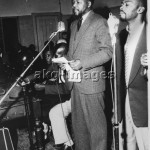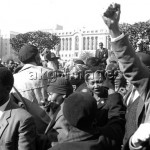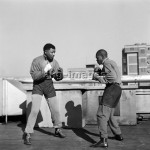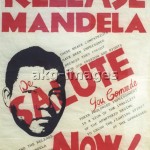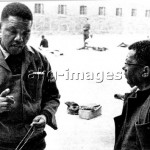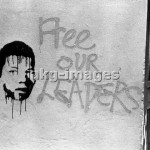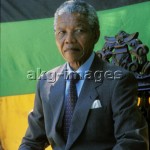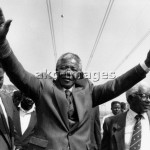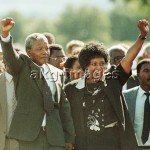Nelson Mandela and my political awakening
This morning the world woke up to the news millions had been dreading – the beacon of hope, freedom and reconciliation, Nelson Mandela had died.
I have never been to South Africa nor was I even alive when Mandela was tried and sentenced to life imprisonment but his name was very familiar to me from the moment I became even remotely interested in history and current affairs. It is a testament to the man and all his supporters over the decades that his name was known all over the world even to people who didn’t necessarily know anything about the struggles in South Africa or the reasons for Mandela’s imprisonment.
When I first came to London as an au pair in the late 1980s, I went to a community college for language classes and they had renamed one of the campus’s halls “Mandela Hall” and the song “Free Nelson Mandela”, released in 1984 was still playing everywhere. It had become an anthem for a generation who had never heard of the man or his story and told us all we needed to know. Paul Simon’s “Graceland” recorded with South African musicians also became, whether by design or default, central to the debate about apartheid, more than 20 years after Mandela had been sent to prison.
In central London the South African High Commission was picketed day and night, an impressive introduction to direct action politics for me at the time. They upheld their protest 7 days a week, 24 hours a day, not just protesting against Mandela’s imprisonment but against the Apartheid regime in South Africa.
When Mandela was finally released in 1990 and the Apartheid regime in South Africa began to crumble, nobody knew quite what was going to happen. He was elected South Africa’s first black president in 1994 and went about trying to reconcile his country after decades of bloody struggle. His name became synonymous with freedom, peace and reconciliation and his face and wonderful smile a beacon of hope for many.
One of my colleagues from South Africa brought the immense importance of Mandela home to me in a very personal way. He had been in hospital in the summer and the world was expecting the worst. We were both at a conference and my colleague’s overriding thoughts were that she wanted to be at home in case anything happened to Mandela – they were not ready to lose him yet as a nation and I don’t think the world was either. His name and legacy will live on but he will be impossible to replace. Rest in Peace.
